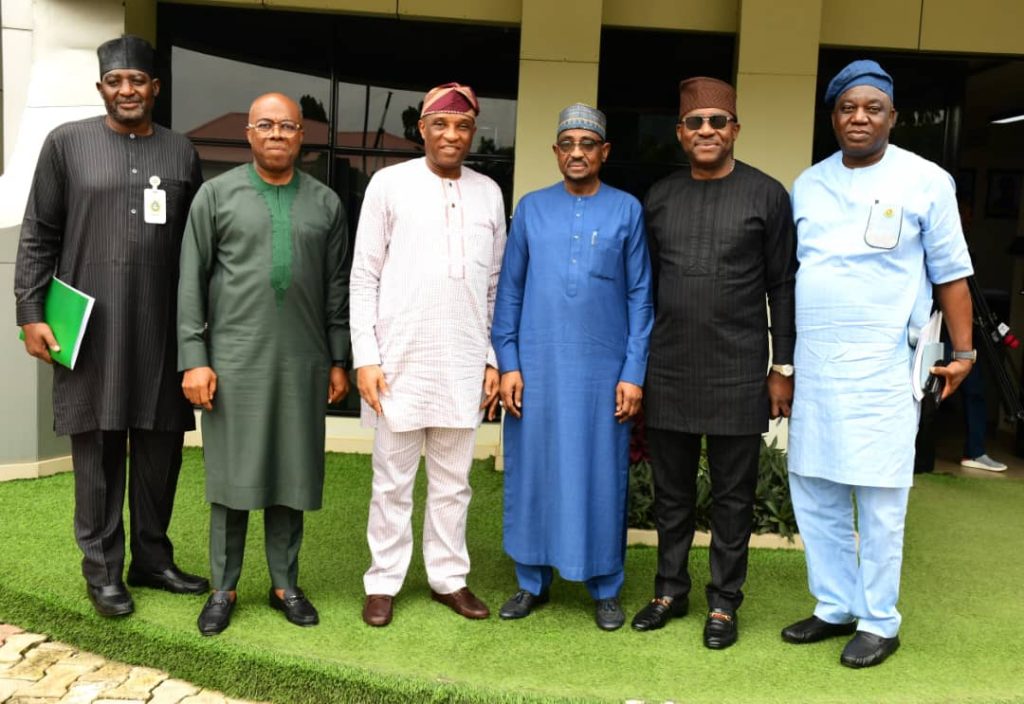
FCCPC Executive Vice Chairman/CEO, Mr. Tunji Bello (left), NMDPRA Chief Executive, Mr. Farouk Ahmed (centre), FCCPC Executive Commissioner (Operations), Mr. Louis Odion (right), NMDPRA Mr. Ogbugo Ukoha (Executive Director, Distribution Systems, Storage & Retailing Infrastructure) during a strategic meeting at the FCCPC over the weekend to strengthen consumer protection and competition collaboration in the petroleum sector.
FCCPC, NMDPRA forge alliance to combat fuel price manipulation against consumers
In a move to safeguard the interests of Nigerian consumers, the Federal Competition and Consumer Protection Commission (FCCPC) and the Nigerian Midstream and Downstream Petroleum Regulatory Authority (NMDPRA) have committed to a stronger collaboration to protect fuel consumers.
The pledge was made during a courtesy visit by NMDPRA’s Chief Executive Officer, Farouk Ahmed, to the FCCPC’s CEO, Tunji Bello, in Abuja.
During the meeting, FCCPC CEO, Tunji Bello, reaffirmed his agency’s dedication to ensuring consumer welfare and enforcing fair competition within the petroleum industry.
He promised that the commission would use its full authority to protect Nigerians from abusive practices such as market dominance, price manipulation, and other anti-competitive behaviors.
Seeking a closer partnership, NMDPRA CEO, Farouk Ahmed, emphasized the need for joint efforts to address price distortions, prevent anti-competitive conduct, and enhance oversight in the vital downstream petroleum sector.
A joint statement by two agencies confirmed that this partnership is built on the FCCPC’s legal mandate to protect consumers, prohibit restrictive trade practices, and promote transparent markets that benefit all Nigerians.
This initiative follows a recent warning from the NMDPRA on May 8, 2025, which directed all filling stations to comply with regulations and strictly avoid under-dispensing fuel.
The authority’s Kogi State coordinator, Godwin Ogbe, had earlier urged the public to report any suspected violations, assuring that offending outlets would face sanctions.
